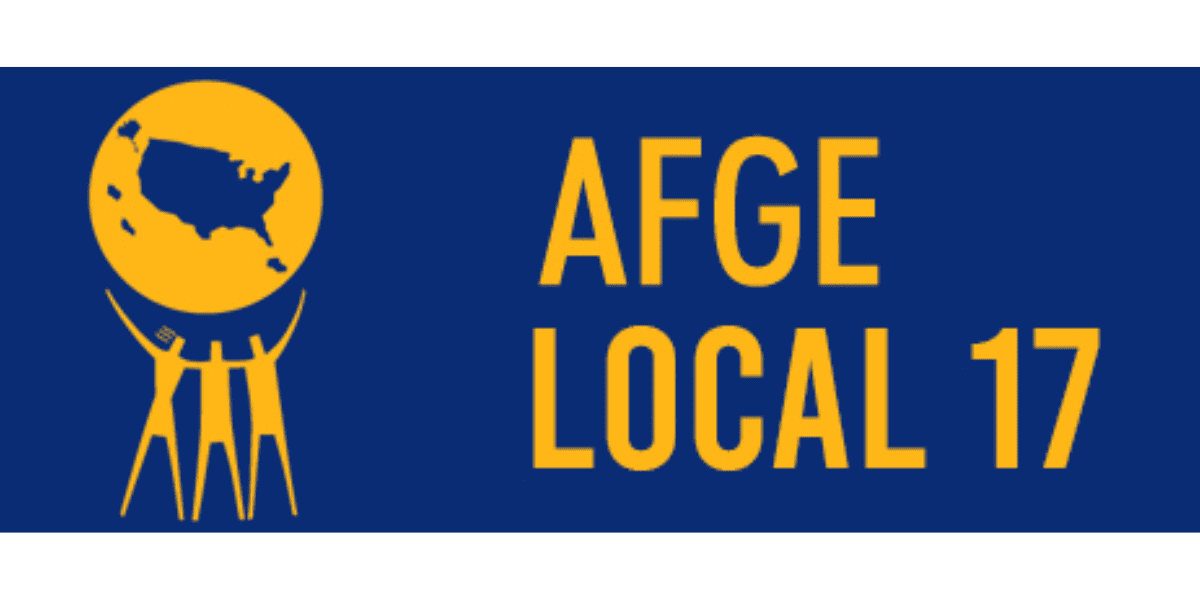At the dawn of former President Donald Trump’s administration, government employees and contractors in need of security clearances could wait years for approval. Federal agencies stared down a backlog of 700,000 clearance investigations starting in 2017.
For one former senior-level State Department employee, who is a person of color, they waited more than two years to get approved for a top secret clearance.
When the Trump administration arrived, many new Trump officials received “interim security clearances” because they didn’t initially meet standard security requirements, the former employee told Raw Story. This contributed to a screening backlog.
“With Trump it was a mixture of business with foreign governments, a lot of internal exchanges or engagements that needed more explanation, so there were a lot of outstanding issues that needed further explanation, and it just didn’t happen,” said the former employee, who spoke on the condition of anonymity due to employment concerns.
But it wasn’t just clearing Trump’s appointees that created the delays — not even close. Problems started in the years prior and continued on in subsequent years, according to national security experts. Among them: the ending of a contract with a background investigations company, USIS, and the 2015 cybersecurity breach of the Office of Personnel Management, which compromised the background investigation records of more than 20 million federal employees and contractors.
That backlog was largely responsible for prompting the need for a multi-agency reform effort around personnel vetting, dubbed Trusted Workforce 2.0, and the related policy changes intended to streamline investigative processes, said Viet Tran, a spokesperson for Office of Personnel Management.
Around that time, in 2018, the Government Accountability Office first put the personnel vetting process on its “high-risk” list of areas of the government in urgent need of transformation or susceptible to waste, fraud, abuse or mismanagement.
The reasons: IT system issues, a lack of performance evaluation throughout the process and slow processing times, said Alissa Czyz, director of defense capabilities and management at the Government Accountability Office.
Five years later, personnel challenges remain in the security clearance process, along with technological issues in terms of tracking and vetting cleared personnel, Raw Story revealed in its three-part “Losing Track” investigation. (Read Part I and Part II here.)
“It was a number of issues that led us to put it on our high risk list back in 2018,” Czyz said. “It’s still on there today.”
By December 2021, GAO expressed numerous concerns, according to a report based on an investigation into Trusted Workforce 2.0’s security vetting process.
There was a lack of assessment measures of agencies’ continuous vetting processes. Deficiencies with strategic workforce planning were endemic. Best practice guidelines for the software development of the National Background Investigation Services (NBIS) weren’t being followed.
A year later, Congress passed a law requiring the Office of the Director of National Intelligence to develop measures to assess the performance of personnel vetting. The office says it is working on “implementing metric collection that is going to be required for every department and agency,” said Mark Frownfelter, assistant director for the Special Security Directorate within the National Counterintelligence and Security Center at the Office of the Director of National Intelligence.
“It’s an incredibly important process to have folks that come in and work for the federal government properly vetted, especially those that have access to highly classified information. It’s really critical,” Czyz said. “We have seen progress. We’re optimistic with some of the modernization efforts here too, but work remains in the area, so it’s on our high-risk list so we can continue to monitor and hopefully help those agencies get there with the process.”
Why can extremists get cleared but others can’t?
Even as the National Background Investigation Services (NBIS) and the practice of continuous vetting are poised to catch more potentially bad actors from within, such as right-wing extremists and others who might compromise government secrets, potentially dangerous people can still get security clearances.
As a part of the clearance vetting process, applicants submit references who can speak to their character at different times of their lives. Take Jack Teixeira, the 21-year-old airman who leaked classified defense documents. He allegedly spoke about violence, shared distrust of the government and expressed racist beliefs, The Washington Post reported.
So why didn’t a red flag come up during his vetting process?
“I don’t think he would have volunteered someone to vouch for him who wouldn’t have seen his conservatism and the things that his Discord buddies were highlighting,” said Kristopher Goldsmith, a former forward observer in the Army and CEO of Task Force Butler Institute, a nonprofit that targets extremist organizations.
“He loves guns. He’s Christian. He’s conservative. I don’t think that anyone who saw that side of him would have thought that he shouldn’t get a clearance,” Goldsmith said.
Earlier this month, 65 Democrats in Congress sent a letter to the Department of Homeland Security inquiring about its efforts to weed out domestic extremists based on reports showing that more than 300 current or former Department of Homeland Security employees were members of the right-wing Oath Keepers or working with other conservative militia groups, The Washington Post reported.
Meanwhile, on the other end of the spectrum, some people up for security clearances may experience increased scrutiny during the vetting process due to their ties to foreign countries, which is the source of many questions on what’s known as Standard Form 86, a 136-page document that asks numerous questions of an applicant seeking a security clearance on topics like employment history, family ties, foreign travel, residences, criminal history and drug use.
“The problem is when you come in as a person with ties to a foreign jurisdiction, even though it says you can be a dual citizen, you really can’t,” said Dan Meyer, partner at law firm Tully Rinckey PLLC’s Washington, D.C. office and a former Navy communications security officer who used to process security clearances. “I know what the regulation says, but everybody’s queasy about somebody who hasn’t renounced the other jurisdiction.”
Unlike Teixeira and Jordan Duncan, a jailed neo-Nazi who Raw Story revealed had stored top-secret classified information on his computer, members of the Asian American and Middle Eastern communities often find themselves under greater scrutiny if they have ties to other countries, especially China, said the former senior-level State Department employee.
“There are national security implications because we need talent in place in the era of strategic competition,” said the former senior-level State Department employee. “Then you see extremists get them. The process is imperfect. There are some flaws.”
Meyer said that individuals seeking security clearances with the government need to cut ties with foreign countries by selling foreign property and closing any bank accounts in other countries in order to be approved for clearances.
“If you have relatives in a foreign country, you have to be able to tell security, and tell security convincingly, that if … somebody said they’re gonna kill your mother unless your hand over the classified information — and they can do that because she’s still living in Islamabad — then you have to tell security convincingly that you would let your mother go,” Meyer said. “You would let your mother die, rather than betray the secrets of the United States. I’ve had a couple of clients successfully do that.”
Patrick Eddington, a senior fellow in homeland security and civil liberties at the libertarian think tank, the Cato Institute, said the State Department and FBI’s Post-Adjudication Risk Management (Parm) Program, which requires more frequent interviews and increased scrutiny of certain individuals in the program, unfairly targets Chinese Americans.
Even though the Office of the Director of National Intelligence released a report last year that said the People’s Republic of China does not prioritize targeting Chinese Americans in the intelligence community, and employment decisions cannot be made based on the “ethnic or racial background of any U.S. person,” Eddington said a number of Chinese Americans are still being denied the opportunity to work for the government out of alleged concerns that they might be recruitment targets for Chinese intelligence.
“Chinese Americans are being discriminated against in their background investigations and readjudication investigations and even actual assignments where they could potentially be sent because of this kind of nonsense,” Eddington said.
But Frownfelter said eliminating bias in the vetting process is an area the Office of the Director of National Intelligence is “passionate” about. The office has examined its training standards and introduced “more robust cultural competency training for investigators and the adjudicators.”
The office has also met with groups that have expressed concerns about bias in the vetting process, including the LGBTQ+, Chinese American and other minority communities.
Part of those meetings includes discussing that investigating foreign ties is a standard part of the vetting process that needs to be investigated, and the office recognizes that there’s a difference between validating this standard information versus “unfair or lack of equity in the treatment of them going through the process,” Frownfelter said.
Another group that often does not get security clearances but could benefit from them for their jobs is congressional staffers, said Lee Tien, senior staff attorney at the Electronic Frontier Foundation, a nonprofit digital rights group.
“It’s appalling how easily the rules and the clearance processes … they can manipulate that, configure that in a way to lessen scrutiny,” Tien said.
A lack of high-skilled talent in counterintelligence
While the National Background Investigation Services (NBIS) automates much of the continuous vetting process, are there still enough high-skilled employees to do the work of vetting cleared personnel?
Robert Sanders, distinguished lecturer in the national security department at the University of New Haven and former Navy JAG captain, says no as he observed a shrinking pool of highly skilled national security talent while he worked for the government until 2018 — which included individuals who conduct security clearance investigations.
“It’s great to have new initiatives that allow for greater scrutiny of individual clearances, but you have to have enough people on the side to do the scrutiny,” Sanders said. “It may look like you are being more effective as you pass more paper through the mill or more people over the bridge, but are you getting the same quality in the process that you want?”
Meyer said the national security talent pool isn’t declining, but there’s long been challenges with employing quality talent in the counterintelligence space.
“Counterintelligence has always been the misfit sibling in the pack,” said Meyer, who also formerly worked for the U.S. Department of Defense Inspector General. “Your spies got the highest accolades. Your analysts were really valued, and then when you got to counterintelligence, that was where your problem children went to spend their careers.”
Frownfelter said he has observed the Defense Counterintelligence and Security Agency hire a lot of investigators in response to the backlog.
“If we had another 9/11 and the government all of a sudden had to hire thousands and thousands of employees very quickly, you could see this become an issue, but I think where we are now in this environment with the steady state, I think we’re in good shape with investigators, adjudicators and even polygraph examiners,” Frownfelter said.





